|
Saint Gertrude lived in the 13th century. During this time the Church was rich in scholars and mystics. These included St. Thomas Aquinas, St. Dominic, St. Clare, St. Bonaventure, St. Francis of Assisi and among many others, St. Gertrude the Great. She was born in Germany on the Feast of the Epiphany (January 6, 1256). As an orphan she was raised by Benedictine nuns and eventually became a professed non. She was a close friend of St. Mechtilde of Hackeborn. Both are considered mystics.
St. Gertrude was 26 years old when she began to have visions of Jesus. Through prayer, work, fasting and the revelations of Jesus, St. Gertrude became detached from everything that would hold her back from loving and being loved by Him. During her life she received many revelations and favors among which He gave her a great familiarity with His Sacred Heart. St. Gertrude died on November 17, 1301. She left behind a great testament of love and devotion as well as 3 major writings which are 1) The Herald of Divine Love, 2) The Spiritual Exercises of St. Gertrude and 3) The Book of Special Graces. These writings have been esteemed by many theologians and saints, such as St. Francis de Sales. St. Gertrude, on the feast of St. John laid her head near the wound in the Savior’s side and heard the beating of the Divine Heart. She asked John if he had felt these pulsations on the night of the Last Supper and why he had never spoken of this experience. John replied that this “…revelation had been reserved for subsequent ages when the world, having grown cold, would have need of it to rekindle its love.” For St. Gertrude the mystical favors granted to her as a result of reflection and devotion to the Sacred Heart included (1) gifting of hearts, (2) leaning against Jesus’ bosom (as John the Beloved did), (3) the grace of drinking from the side of Jesus, and (4) imprints of the wounds of Jesus. The Catechism, quoting Pope Pius XII's encyclical "Haurietis Aquas" (1956), states, "[Jesus] has loved us all with a human heart. For this reason, the Sacred Heart of Jesus, pierced by our sins and for our salvation, 'is quite rightly considered the chief sign and symbol of that ... love with which the divine Redeemer continually loves the eternal Father and all human beings' without exception (P. 478).” Devotion to the Sacred Heart has different variations. There are a few principle elements that are common to all variations. According to the “Directory on Popular Piety (2001)” they are as follows: 1) Personal consecration (185); 2) Family consecration to the Sacred Heart…(186); 3) The Litany of the Sacred Heart of Jesus… which is evidently biblical in character and to which many indulgences have been attached; 3) the act of reparation, a prayer with which the faithful, mindful of the infinite goodness of Christ, implore mercy for the offences committed in so many ways against his Sacred Heart(187); 5) The pious practice of the first Fridays of the month which derives from the "great promises" made by Jesus to St. Margaret Mary. At a time when sacramental communion was very rare among the faithful, the first Friday devotion contributed significantly to a renewed use of the Sacraments of Penance and of the Holy Eucharist. In our own times, the devotion to the first Fridays, even if practiced correctly, may not always lead to the desired spiritual fruits. Hence, the faithful require constant instruction so that any reduction of the practice to mere credulity is avoided and an active faith encouraged so that the faithful may undertake their commitment to the Gospel correctly in their lives. They should also be reminded of the absolute preeminence of Sunday, the "primordial feast"(188), which should be marked by the full participation of the faithful at the celebration of the Holy Mass. It seems there is a great theological and anthropological thread in Sacred Heart Devotion. The thread of Theology reveals to us, the deep insight into the depth of love and interest that Jesus has in the life of the individual person, and how this devotion calls us into a real intimacy. The anthropological thread reveals to us truth about ourselves. Jesus is fully God and fully human. Our humanity is only complete and fulfilled to the degree that we live in him. As St. Augustine states in his Confessions “You have made us for yourselves O’ Lord, and our hearts will not rest until they rest in you.” Comments are closed.
|
AuthorsVarious Archives
December 2023
Categories |
Website by Caston.CC

 RSS Feed
RSS Feed

